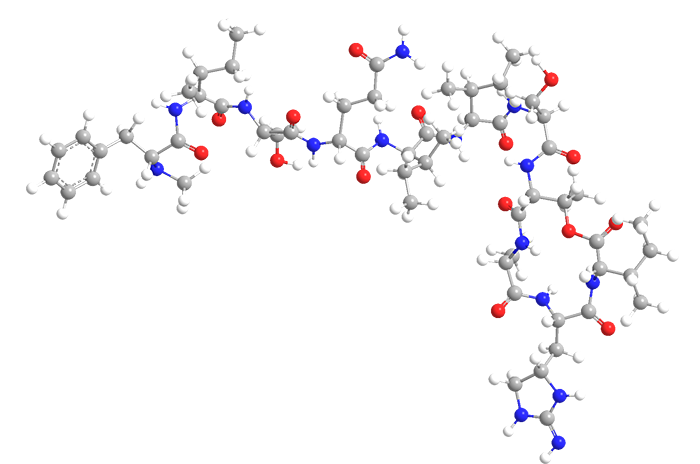

Teixobactin is a small-molecule antibiotic reported in early 2015 by K. Lewis at Northeastern University (Boston) and colleagues around the world. The researchers used an innovative screening method to culture teixobactin-containing bacteria. They then identified and isolated the molecule.
In cell-based tests, teixobactin killed many types of Gram-positive pathogens, including drug-resistant strains. Tests in mice showed that the compound is effective against methicillin-resistant Staphylococcus aureus and Streptococcus pneumoniae with low toxicity. In addition, the researchers were unable to grow mutants of S. aureus or Mycobacterium tuberculosis that resisted teixobactin. They believe that the compound avoids resistance by destroying the microbes’ ability to build cell walls rather than targeting specific proteins that change as bacteria mutate.

Learn more about this molecule from CAS, the most authoritative and comprehensive source for chemical information.
Molecule of the Week needs your suggestions!
If your favorite molecule is not in our archive, please send us a message. The molecule can be notable for its current or historical importance or for any quirky reason. Thank you!
Stay Ahead of the Chemistry Curve
Learn how ACS can help you stay ahead in the world of chemistry.

